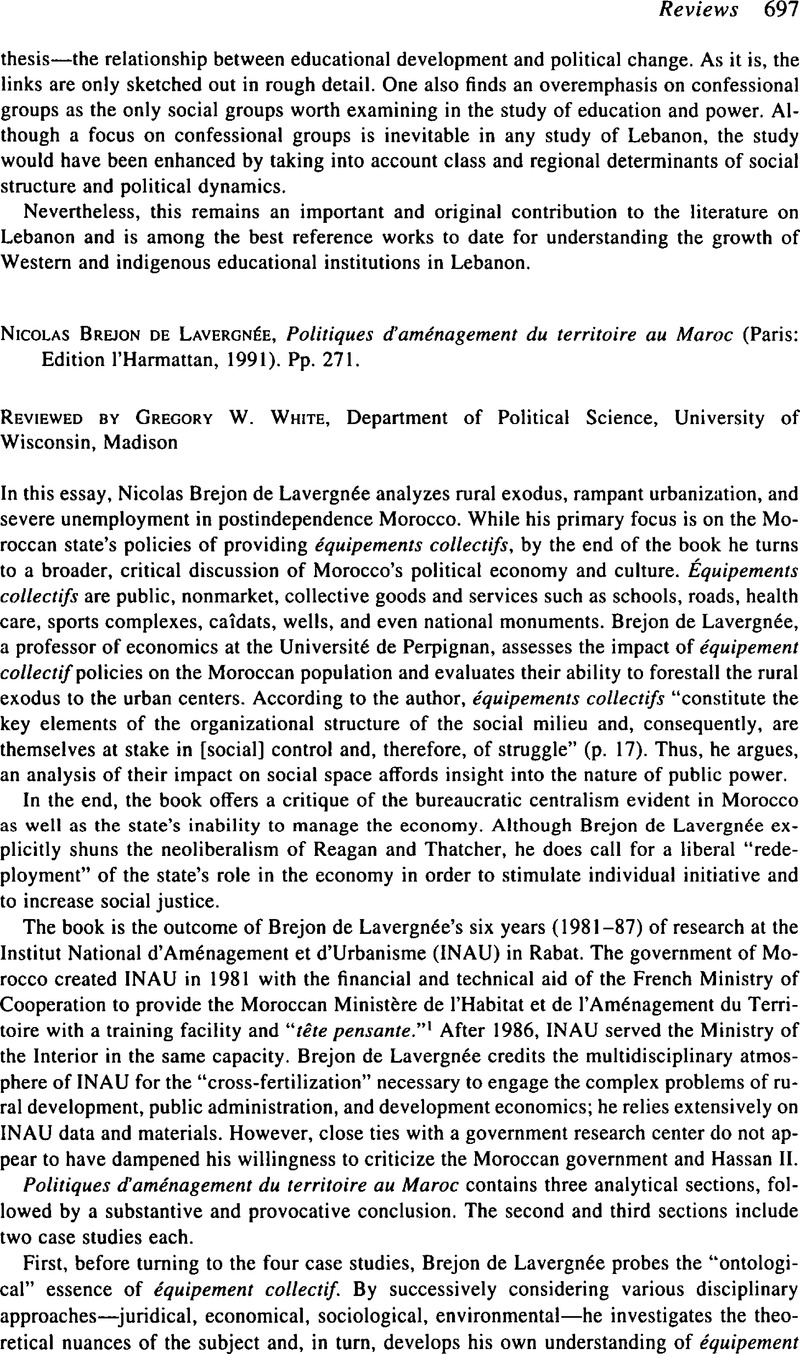No CrossRef data available.
Published online by Cambridge University Press: 29 January 2009

1 Aménagement is a highly contested concept and, therefore, subject to interpretation. It can be understood to mean the active process of the development or the “setting up” of an entity. It can also connote the idea of planning, restructuring, conversion, even improvement. The Statesman's Yearbook (New York, 1986) calls the ministry the “Ministry of Housing and Land Management,” a somewhat unsatisfactory rendering.Google Scholar
2 Rémy Leveau, Cf., “Aperçu de l'évolution du système politique marocain depuis vingt ans” Maghōeb-Machrek 106 (10–12, 1984);Google ScholarWaterbury, John, The Commander of the Faithful (New York, 1970);Google ScholarZartman, I.W., ed., The Political Economy of Morocco (New York, 1987).Google Scholar
3 A. Kiassi, “Le centre de Zoumi, genèse, mécanismes de dévelopment et perspectives d'aménagement,” INAU, 1986; A. Chahair, “La problématique du transport urbain dans la mégalopole casablancaise,” INAU, 1984.
4 Robert Wade, Cf., “What can Economics Learn from East Asian Success?” Annals of the AAPSS 505: 68–79;CrossRefGoogle ScholarHaggard, Stephen, “The Newly Industrializing Countries in thē International System” World Politics 38: 343–70.CrossRefGoogle Scholar